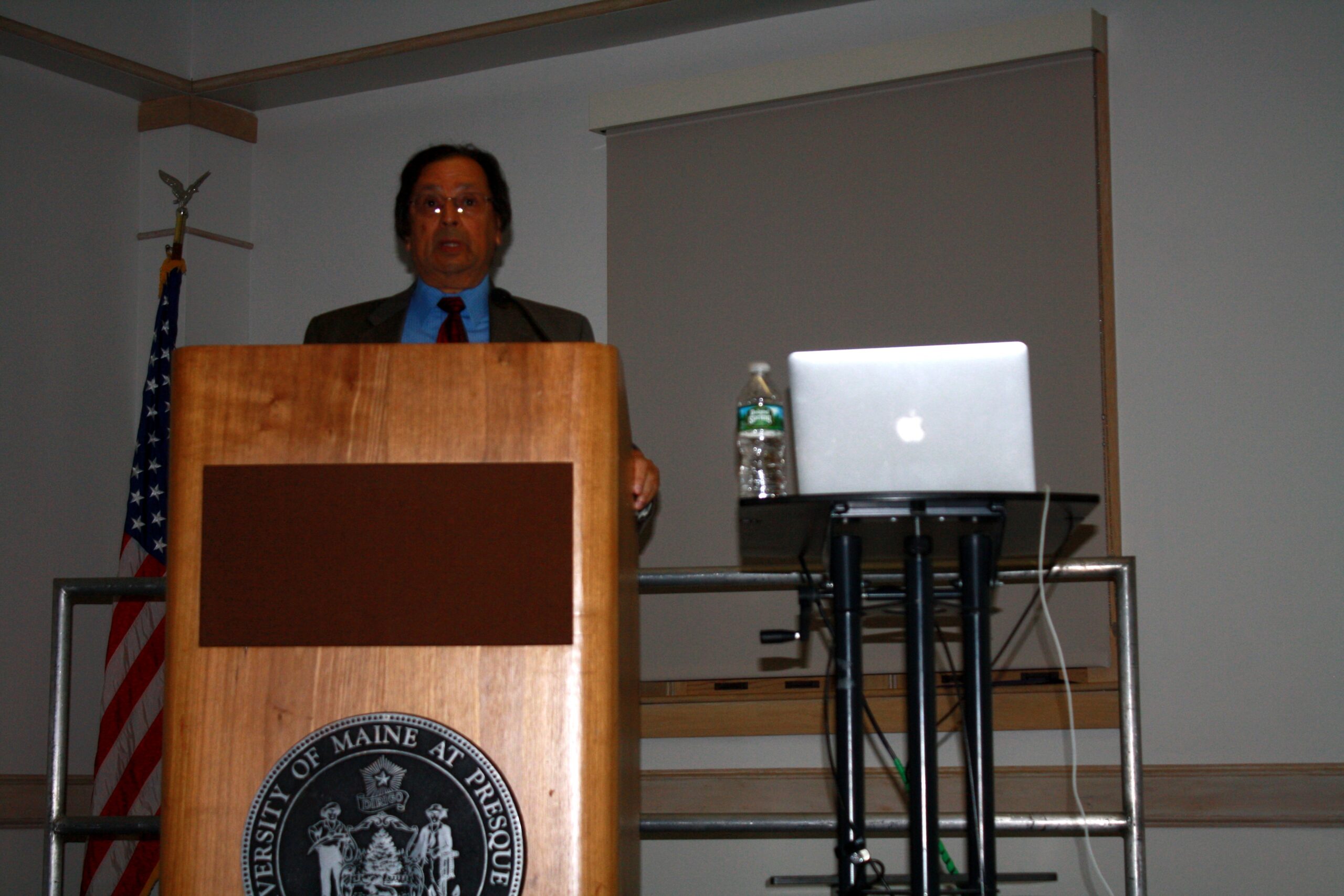
PRESQUE ISLE, Maine — In celebration of 60 years of operation in Presque Isle, the Central Aroostook Association invited a world-renowned human rights advocate to speak about the history and eventual reform of services for individuals with developmental and intellectual disabilities.
Clarence Sundram is known in the state of Maine for serving as special court master during the oversight of the adult intellectual consent decree that resulted from a lawsuit filed in 1975 over the now closed Pineland Center, a state-run mental health institution in New Gloucester. Sundram worked to ensure the consent decree was followed and he oversaw the establishment of community-based programs for children and adults with developmental and intellectual disabilities.
During his presentation at the University of Maine at Presque Isle on April 18, Sundram said that in colonial America the emotional support that individuals now receive through home and community-based programs was nonexistent. Instead, people with developmental disabilities either lived secluded in their families’ home, sheltered from stigma and judgement, or in poorhouses.
In Maine, the institution that would become Pineland, “The Maine School for the Feeble-Minded,” began in 1908. Originally such institutions started with the hope of providing vocational training and education for people with disabilities and then placing them back in their communities.
But unlike poorhouses that individual towns operated, the state held control of institutions and began to label people with disabilities as being “morons,” “idiots” and “imbeciles” that had to be separated from their families and the general public.
“These institutions became custodial warehouses for people with disabilities,” Sundram said. “With the advent of the eugenics movement, those people were locked up and sterilized because they were believed to be moral degenerates who shouldn’t reproduce.”
The existence of state mental institutions legally allowed for people with disabilities to be excluded from important social reform laws such as the Social Security Act of 1935 and from attending public schools. In facilities throughout the world and in the U.S. it was not uncommon for “patients” to be kept in small cages or crowded in jail cells without clothes, little food and water, and few chances for physical exercise.
Many people with disabilities experienced physical, emotional and sexual abuse in those institutions. It was not until the 1960s that video footage from Willowbrook School on Staten Island, New York, exposed the harsh treatment they endured.
Sundram emphasized that reform for disability services has historically been slow partly due to how international human rights declarations have ignored people with disabilities. Despite decades of activism from families, attorneys and support advocates, the United Nations did not adopt the Convention on the Rights of Persons with Disabilities, an international human rights treaty, until 2006.
But thanks to that activism, the social services field has also made “unimaginable” strides toward establishing and maintaining community-based programs. In Presque Isle, the Central Aroostook Association, which began in 1959, now operates eight programs that include adult and children case management and a special purpose private school, residential and shared living homes.
“This has allowed people with disabilities to stay close to their families and friends, attend school and have jobs in their own communities,” Sundram said.
Among the challenges facing the social services field today, he noted, are a shortage of workers to fill crucial support staff roles, a higher demand for home-based care for Maine’s growing elderly population, and the uncertainty of funding for state Medicaid and federal health insurance.
Sundram said that during his visit to Presque Isle, he toured Central Aroostook Association and was impressed with the staff’s commitment to the people they serve. Compared to the 44.8 percent national turnover rate for direct support professionals who leave their jobs within six months due to minimum wage payment and less opportunities for training, he met many people at CAA who have worked there for several decades.
“I saw an unusual level of commitment among the staff that you don’t see everywhere,” Sundram said. “That commitment is vital, especially as people with disabilities grow older. Parents want to know their son or daughter will be well taken care of when they’re gone and have a good life.”
He encouraged his audience members, many of whom work in the social services field, to continue working on behalf of their clients in hopes of maintaining happier futures for people with disabilities.
“The language we use to talk about disabilities may be different now, but our advocacy work is never done. We must be vigilant in ensuring that the isolation, loneliness and neglect people with disabilities once faced never happens again,” Sundram said.






